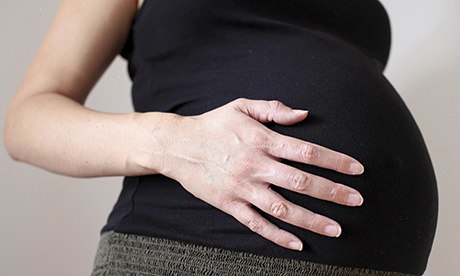
For all those who are concerned about the rights, health and dignity of women, reports of an alleged forcible caesarean carried out on an Italian woman in Essex are alarming. Pregnant women in the UK maintain the right to bodily autonomy and consent over medical treatment, even when carrying a baby to full term might jeopardise either their foetus's health or their own.
So it is vital that the sometimes paternalistic, speculative and judgmental advice given to women about how to maintain a healthy pregnancy does not slip into forced treatment or criminalisation of pregnant women who are mentally ill, substance using or non-compliant.
Nor should these women be at risk of routinely losing custody of their children. The human rights implications are serious; the practical healthcare ramifications of deterring women from seeking help in pregnancy are dire; and the consequences of prioritising foetal life over the life of the mother (as in the case of Savita Halappanavar in Ireland and countless cases in Latin America) are tragic.
We do not know the full details of the Essex case, but reports suggest that the woman sought help for a panic attack (possibly a result of failing to take medication for a pre-existing mental health condition). She was taken to a psychiatric unit, sectioned under the Mental Health Act and hospitalised for five weeks before being sedated and given a caesarean section without her knowledge, let alone consent. There is no suggestion the caesarean was necessary to protect her health or life, only that it was requested by social services to remove the baby for child protection purposes [see footnote].
Babies are sometimes removed from their mothers at birth as part of a child protection plan. But it is unclear what the legal justification could be for performing a caesarean (which carries risks for the woman) for child protection purposes, instead of waiting for the birth. A landmark legal case has established that a woman has the right to refuse a caesarean even if there is a risk to the foetus of continuing pregnancy to term.
There is no reason the priority of rights should be reversed in a woman who is mentally ill. Moreover, it is an open question how to distinguish between a woman's incapacity to make a decision and her right to make a decision that we might disagree with or which could be considered "irrational", in contradiction of medical advice or moral consensus.
Apart from the legal issues, there are many outstanding questions about this case. What additional protection did being born by caesarean section offer the infant? Did anyone consider the trauma for the mother's mental health of waking up to discover she had been operated on and lost her child for good?
If the baby has been taken away for adoption, why? Did a child protection plan include the possibility of her condition stabilising (with short-term fostering of the baby as an interim measure)? Questions need to be answered and any breach of rights legally challenged. Not only is it a personal tragedy for the woman in this case, but it represents a shift from established legal and ethical principle and practice.
Defenders of such abuses will often point to the extreme, unusual and unique circumstances in which a decision was made. Laws that restrict women's rights are often passed by focusing on so-called "hard cases".
You have to look no further than the US, where anti-abortion politicians and judges have shifted the legislation and culture incrementally in favour of the foetus. These laws create an environment of suspicion and scrutiny in which women who need professional support are better off not "confessing" to being unable to cope or needing help for fear of arrest.
Until this week I assumed that a pregnant woman living in the UK could still expect a request for help, or an admission of a health problem, to be met with support – not prosecution, forced medical intervention or automatic loss of child custody. The Essex case suggests otherwise.
• This footnote was added on 4 December 2013. It was subsequently made clear that it was the local health trust which sought permission for the baby to be delivered by caesarean section. Essex council's social services then applied for an interim care order.

